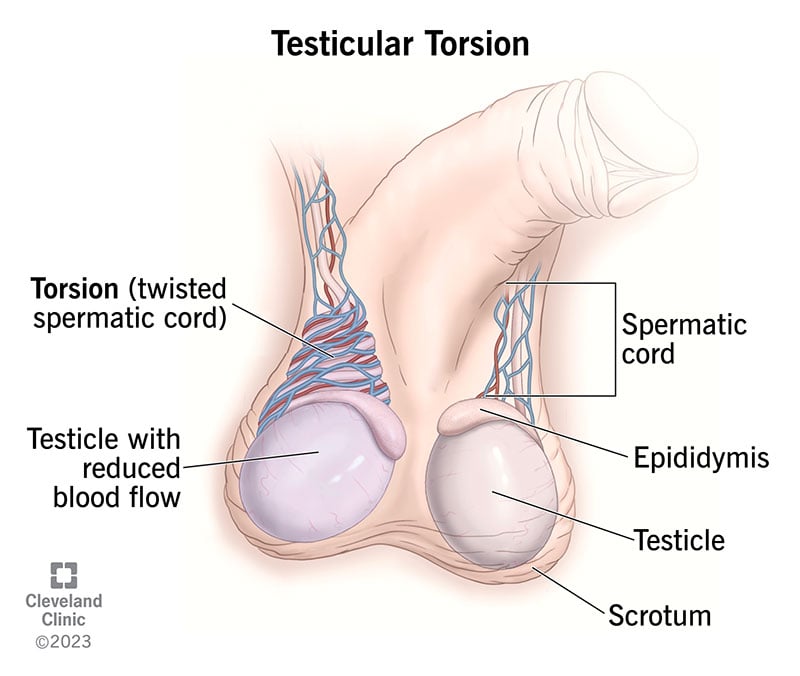Supplements To Support Testicular Health And Fertility

Understanding Testicular Health and Fertility
Understanding testicular health and fertility is crucial for men of all ages. The testicles, which are the primary reproductive organs in males, play a vital role in fertility and overall well-being. They are responsible for the production of sperm and the secretion of hormones, such as testosterone, which are necessary for sexual development and function.
In this video, Dr. Raman Tanwar talks about normal variations and testicular size as well as Testicular self-examination.
Testicular health is not only important for fertility but also for various aspects of male health. Any issues or abnormalities in the testicles can have a significant impact on a man’s reproductive capabilities, hormonal balance, and overall quality of life. Therefore, it is essential to have a comprehensive understanding of what constitutes normal testicular health and the factors that can affect it.
Several factors can influence testicular health and fertility, including genetic predisposition, endocrine disorders, infections, trauma, lifestyle choices, and exposure to certain environmental toxins. By understanding these factors, individuals can make informed decisions to protect and improve their testicular health. Moreover, being aware of the symptoms and signs of potential testicular problems enables men to seek timely medical intervention, enhancing their chances of successfully addressing any issues that may arise.
In the following sections, we will delve deeper into the various aspects of testicular health and fertility, exploring common causes of issues, identifying symptoms, and outlining strategies to promote optimal testicular function. By gaining a better understanding of these topics, individuals can take proactive steps to maintain and enhance their reproductive health, ensuring a healthier and more fulfilling life.
The Importance of Testicular Health and Fertility
Testicular health and fertility play a crucial role in men’s overall well-being and reproductive potential. The testicles, also known as testes, are responsible for producing testosterone (the male sex hormone) and sperm, which are essential for sexual development, function, and fertility.
Maintaining testicular health is important for several reasons. Firstly, healthy testicles ensure the production of an optimal level of testosterone, which is vital for sexual desire, muscle mass, bone density, and overall strength. Testosterone also plays a role in mood regulation and cognitive function. Secondly, healthy testicles are necessary for the production and maturation of sperm, which is necessary for fertilizing an egg and the continuation of the human race.
Problems with testicular health and fertility can lead to a range of issues, including infertility, hormonal imbalances, sexual dysfunction, and psychological distress. By understanding the importance of testicular health and fertility, individuals can take proactive steps to maintain and enhance their reproductive potential. This article will delve deeper into the causes, symptoms, and management of testicular health and fertility issues, providing valuable insights and recommendations for optimal reproductive health.
Here’s a table highlighting the importance of testicular health and fertility:
| Importance of Testicular Health and Fertility | Key Considerations | Credible Source |
|---|---|---|
| Reproduction and Family Planning | Healthy testicular function is essential for successful reproduction and family planning. Issues with testicular health can impact fertility. | American Urological Association – Male Infertility |
| Hormonal Regulation | Testicles produce testosterone, a key hormone for male reproductive health, influencing libido, muscle mass, and overall well-being. | Mayo Clinic – Testosterone |
| Sperm Production and Quality | Testicles play a crucial role in sperm production. Maintaining healthy testicular function is vital for producing high-quality sperm necessary for conception. | American Society for Reproductive Medicine – Male Reproductive Health |
| Sexual Function | Testicular health is linked to sexual function, including libido and the ability to achieve and sustain erections. Issues with testicular health may impact sexual satisfaction. | Cleveland Clinic – Male Sexual Dysfunction |
| Emotional Well-being | Fertility concerns or issues with testicular health may affect a man’s emotional well-being, leading to stress and anxiety. Seeking support is essential. | Resolve: The National Infertility Association – Emotional Aspects of Infertility |
| Overall Health Indicators | Testicular health can be indicative of a man’s overall health. Regular check-ups and addressing any concerns promptly contribute to overall well-being. | Urology Care Foundation – Men’s Health |
| Prevention of Testicular Disorders | Maintaining a healthy lifestyle and seeking medical advice for any concerns can contribute to the prevention of testicular disorders and potential fertility issues. | Urology Care Foundation – Testicular Disorders |
Common Causes of Testicular Health and Fertility Issues
Testicular health and fertility issues can arise due to a variety of factors, both physiological and environmental. One of the most common causes is hormonal imbalances, particularly a decrease in testosterone levels. Testosterone is essential for the development and maintenance of reproductive tissues, including the testicles. Conditions such as hypogonadism, where the testes produce insufficient testosterone, can lead to reduced fertility and overall testicular health.
Beyond hormonal factors, genetic abnormalities can also contribute to testicular health and fertility problems. Conditions such as Klinefelter syndrome, where males have an extra X chromosome, can affect testicular development and disrupt reproductive function. Additionally, certain structural abnormalities, such as undescended testicles or testicular torsion, can impede proper sperm production and transportation.
Environmental factors can also have a significant impact on testicular health and fertility. Exposure to chemicals, such as pesticides, heavy metals, and certain medications, can disrupt the delicate balance of hormone production and affect reproductive function. Lifestyle choices, such as smoking, excessive alcohol consumption, and drug use, have also been linked to decreased fertility and poor testicular health.
It is important to note that these common causes of testicular health and fertility issues are not exhaustive, and individual cases may have unique underlying factors. If you are experiencing any concerns regarding testicular health and fertility, it is crucial to consult with a healthcare professional for a proper evaluation and diagnosis.
Identifying Symptoms of Testicular Health and Fertility Problems
The identification of symptoms related to testicular health and fertility problems is crucial in determining the underlying issues and seeking appropriate medical care. It is important to understand that any changes or abnormalities in the testicles or associated functions should not be ignored, as they can potentially indicate serious underlying conditions. By being aware of the potential symptoms, individuals can promptly seek medical attention and receive the necessary evaluations and treatments.
One of the key symptoms to pay attention to is the presence of a lump or swelling in the testicles. This can be a possible indication of testicular cancer, which is highly treatable if detected early. Any changes in size, shape, or consistency of the testicles should also be taken seriously and evaluated by a healthcare professional. It is important to note that not all lumps or swellings are cancerous, but proper medical assessment is crucial for accurate diagnosis and appropriate management.
Additionally, experiencing pain or discomfort in the testicles or scrotum warrants medical evaluation. Pain can range from a mild ache to severe and persistent discomfort. This can be associated with various conditions such as epididymitis, orchitis, testicular torsion, or varicocele. It is essential to seek medical attention promptly to determine the underlying cause and initiate appropriate treatment.
Testicular Health and Fertility: Medical Evaluation and Diagnosis
Medical evaluation and diagnosis play a crucial role in understanding and addressing testicular health and fertility concerns. When it comes to reproductive health, it is important to consult with a healthcare professional who specializes in male reproductive health and fertility. They possess the knowledge and expertise to conduct a thorough assessment, evaluate symptoms, and identify any underlying conditions that may be impacting testicular health and fertility.
During the medical evaluation, the healthcare professional will typically begin by gathering a detailed medical history, which includes information about past surgeries, medical conditions, medications, and lifestyle factors. This information helps in identifying potential risk factors or causes of testicular health and fertility issues. Following the medical history, a comprehensive physical examination is conducted to evaluate the overall condition of the testicles, check for any abnormalities, and assess sexual development. The healthcare professional may also recommend additional diagnostic tests, such as semen analysis, hormone level testing, and imaging studies, to further assess testicular health and fertility. These tests provide valuable insights into sperm quality, hormone levels, and potential structural abnormalities or blockages that may be affecting fertility.
Lifestyle Changes to Promote Testicular Health and Fertility

Testicular health and fertility play a crucial role in a man’s overall reproductive function. Numerous lifestyle factors can impact these aspects, and making certain changes can help promote optimal testicular health and enhance fertility. One vital lifestyle change is maintaining a healthy weight. Obesity has been found to have a negative effect on testicular function and can lead to hormonal imbalances, reduced sperm quality, and even erectile dysfunction. Engaging in regular physical activity and following a balanced diet rich in fruits, vegetables, whole grains, lean proteins, and healthy fats can aid in weight management and support testicular health.
Another lifestyle change that can significantly impact testicular health is reducing exposure to harmful environmental toxins. Certain chemicals found in pesticides, plastics, and personal care products have been linked to impaired reproductive function, including lower sperm counts and increased DNA damage in sperm cells. Taking steps to minimize exposure to these toxins, such as using natural and organic personal care products, eating organic foods, avoiding plastic containers and food wrappers, and using non-toxic cleaning products, can help protect testicular health and promote fertility.
In addition to these lifestyle changes, managing stress levels is also crucial for maintaining optimal testicular health and fertility. Chronic stress can negatively affect hormone production and disrupt the delicate balance required for normal reproductive function. Engaging in stress-management techniques such as regular exercise, practicing relaxation techniques like deep breathing or meditation, getting adequate sleep, and seeking support from loved ones or mental health professionals can help reduce stress levels and support healthy testicular function.
Overall, adopting a healthy lifestyle that includes maintaining a healthy weight, reducing exposure to environmental toxins, and effectively managing stress can have a significant positive impact on testicular health and fertility. By making these lifestyle changes, men can take proactive steps to optimize their reproductive function and increase their chances of achieving a successful pregnancy.
The Role of Diet in Supporting Testicular Health and Fertility

The diet we consume plays a pivotal role in maintaining overall health, including the health of our reproductive system. When it comes to testicular health and fertility, a well-balanced and nutrient-rich diet can greatly contribute to optimal functioning.
First and foremost, it is important to ensure an adequate intake of essential nutrients such as vitamins A, C, E, and D, as well as minerals like zinc and selenium. These nutrients are known to have antioxidant properties, which can help protect the testes from oxidative stress and damage. Foods rich in antioxidants include fruits and vegetables, whole grains, nuts, and seeds. Incorporating these into your daily diet can help support testicular health and fertility.
Exercise and Physical Activity for Optimal Testicular Health and Fertility

Regular exercise and physical activity play a crucial role in maintaining optimal testicular health and fertility. Engaging in physical activity helps improve blood circulation throughout the body, including the testicles. This increased blood flow provides essential oxygen and nutrients to the testes, promoting their overall health and function. Additionally, regular exercise helps regulate hormone levels in the body, which is important for healthy sperm production.
Studies have shown that men who are physically active have higher sperm counts and improved sperm quality compared to sedentary individuals. Exercise has also been found to positively impact sperm motility, morphology, and DNA integrity. Furthermore, maintaining a healthy weight through physical activity can help prevent the development of conditions such as obesity and metabolic syndrome, which can negatively affect testicular health and fertility.
When considering exercise for testicular health and fertility, it’s important to remember that moderation is key. While regular physical activity is beneficial, excessive or intense exercise can have a detrimental effect on sperm production. It is recommended to engage in moderate-intensity aerobic activities such as brisk walking, jogging, or cycling for at least 150 minutes per week. Strength training exercises should also be included a few times a week to maintain muscle mass and overall fitness. However, it’s best to consult with a healthcare professional before starting any exercise routine, especially if you have any underlying medical conditions or concerns about fertility.
Stress Management and Its Impact on Testicular Health and Fertility

Chronic stress can have a significant impact on testicular health and fertility. When the body is under prolonged stress, it activates the hypothalamic-pituitary-adrenal (HPA) axis, leading to an increase in cortisol production. Elevated cortisol levels can disrupt the delicate balance of hormones necessary for proper testicular function and the production of healthy sperm.
Research suggests that chronic stress can affect sperm quality, quantity, and motility. High-stress levels have been associated with decreased sperm count, abnormal sperm shape, and reduced sperm movement. Furthermore, stress-induced hormonal imbalances can interfere with the production of testosterone, a primary male sex hormone vital for reproductive health. These findings emphasize the importance of stress management in maintaining optimal testicular function and fertility.
Implementing stress management techniques can help mitigate the detrimental effects of chronic stress on testicular health and fertility. Engaging in regular exercise and physical activity has shown to reduce stress levels by promoting the release of endorphins, which are the body’s natural mood elevators. Practicing relaxation techniques such as deep breathing exercises, meditation, and yoga can also be beneficial in reducing stress and improving overall well-being. Additionally, seeking support from friends, family, or a mental health professional can provide a valuable outlet for managing stress and its impact on reproductive health.
The Benefits of Sufficient Sleep for Testicular Health and Fertility

Sufficient sleep plays a crucial role in maintaining optimal testicular health and fertility in men. Research studies have shown a strong link between inadequate sleep and reduced sperm quality, including decreased sperm count, motility, and morphology. Lack of sleep has also been associated with hormonal imbalances that can negatively impact testicular function.
During sleep, the body undergoes essential processes of repairing and rejuvenating various systems, including the reproductive system. A study published in the American Journal of Epidemiology found that men who reported having trouble sleeping or insufficient sleep experienced a decrease in sperm concentration and overall fertility. Another study published in the Journal of Clinical Endocrinology & Metabolism discovered that men who slept less than six hours per night had significantly lower testosterone levels, which can impact fertility.
In order to promote testicular health and fertility, it is recommended to prioritize sleep and aim for seven to nine hours of continuous, undisturbed rest each night. Making sleep a priority and establishing a consistent sleep schedule can help support proper hormonal functioning and enhance overall reproductive health. It is important to consult with a healthcare professional if experiencing persistent sleep disturbances or concerns about testicular health and fertility.
Natural Supplements to Enhance Testicular Health and Fertility
Natural supplements are often sought after as a way to enhance testicular health and fertility. While there is limited scientific evidence supporting the effectiveness of these supplements, some studies suggest potential benefits. It is important to mention that these supplements should not be used as a substitute for medical treatment, but rather as a complementary approach to support overall reproductive health.
One natural supplement that has gained attention for its potential impact on testicular health and fertility is Coenzyme Q10 (CoQ10). CoQ10 is an antioxidant that plays a crucial role in energy production within cells. It has been suggested that CoQ10 supplementation may improve sperm parameters such as count, motility, and morphology. However, further research is needed to confirm these findings and determine the optimal dosage and duration of supplementation.
Another natural supplement that has shown promise in supporting testicular health is L-carnitine. L-carnitine is an amino acid that plays a vital role in energy metabolism. Preliminary studies suggest that L-carnitine supplementation may improve sperm quality and function. Additionally, it may have antioxidant properties that help protect the reproductive system from oxidative damage. However, more research is needed to fully understand its effects and to establish clear guidelines for its use.
It is important to emphasize that before starting any natural supplements for testicular health and fertility, it is crucial to consult with a healthcare professional. They can provide personalized guidance based on your individual health status and needs. Additionally, it is essential to remember that natural supplements are not regulated by the FDA, so it is important to choose reputable brands and ensure the quality and safety of the products you are considering.
Essential Nutrients for Testicular Health and Fertility Support
The role of essential nutrients in maintaining optimal testicular health and fertility cannot be overstated. Adequate intake of vitamins, minerals, and other essential nutrients is crucial for the proper functioning of the male reproductive system. These nutrients play a significant role in sperm production, motility, and overall reproductive health.
One essential nutrient for testicular health and fertility is zinc. Zinc is a mineral that is involved in numerous enzymatic reactions and plays a critical role in sperm development and function. Studies have shown that zinc deficiency can lead to impaired sperm production and motility. Good food sources of zinc include oysters, beef, poultry, nuts, and seeds. Supplementation may be necessary for individuals with low zinc levels, but it is important to consult with a healthcare professional before starting any supplementation regimen.
Another important nutrient for testicular health and fertility is vitamin E. Vitamin E is a powerful antioxidant that helps protect sperm cells from oxidative damage. It also plays a crucial role in maintaining the structural integrity of sperm membranes. Good sources of vitamin E include almonds, spinach, sunflower seeds, and avocado. However, it is important to note that excessive supplementation of vitamin E may have adverse effects, so it is best to consult with a healthcare professional for personalized guidance.
In addition to zinc and vitamin E, other essential nutrients such as vitamin C, selenium, and omega-3 fatty acids have also been shown to support testicular health and fertility. Vitamin C is an antioxidant that helps improve sperm quality by reducing oxidative stress. Good sources of vitamin C include citrus fruits, strawberries, and broccoli. Selenium is a mineral that is essential for normal sperm production, and it can be obtained from sources like brazil nuts, fish, and eggs. Omega-3 fatty acids, found in fatty fish like salmon and mackerel, have been associated with improved sperm quality and motility.
While obtaining these essential nutrients through a well-balanced diet is ideal, certain individuals may require additional supplementation or dietary modifications to meet their specific nutritional needs. It is important to consult with a healthcare professional to assess individual requirements and determine the most appropriate course of action. With proper nutrition and care, men can proactively support their testicular health and fertility for a better reproductive future.
Herbal Remedies and Their Potential Benefits for Testicular Health and Fertility
Herbal remedies have long been used in traditional medicine systems to promote overall health and address specific health concerns. When it comes to testicular health and fertility, some herbal remedies show potential benefits. However, it is important to note that scientific evidence supporting their efficacy is limited, and more research is needed to confirm their effects.
One herb that is commonly used for its potential benefits in testicular health and fertility is Tribulus terrestris. This herb is believed to enhance testosterone production, which plays a crucial role in sperm production and overall reproductive function. While some studies have shown positive results in animal models and small human trials, larger and more robust studies are needed to determine its effectiveness in improving fertility outcomes in men.
Another herb that has gained attention for its potential benefits in testicular health is Panax ginseng. This herb is commonly used as an adaptogen, helping the body cope with stress. Some studies suggest that Panax ginseng may improve sperm count, motility, and morphology. However, more research is needed to fully understand its mechanisms and confirm its effects on male fertility.
Before considering any herbal remedies for testicular health and fertility, it is crucial to consult with a healthcare professional, especially if you have an underlying medical condition or are taking medications. Additionally, it is important to note that herbal remedies may interact with other medications or have potential side effects. Therefore, it is essential to seek guidance from a qualified healthcare provider who can provide personalized advice and monitor your progress.
Consulting with a Healthcare Professional for Testicular Health and Fertility Concerns
Seeking the guidance of a healthcare professional is essential when experiencing concerns related to testicular health and fertility. A comprehensive evaluation by a knowledgeable and experienced healthcare provider can provide valuable insights and help develop an effective management plan. Whether you are planning to conceive or have noticed any symptoms or changes in your reproductive system, consulting with a healthcare professional will ensure appropriate diagnosis, personalized treatment, and overall support.
During your consultation, the healthcare professional will assess your medical history, perform a physical examination, and may request further diagnostic tests to identify any underlying causes of your concerns. This may include blood tests to evaluate hormone levels, semen analysis to assess sperm count and quality, and imaging studies such as ultrasound to examine the structure of the testicles. A thorough evaluation allows the healthcare professional to determine the most appropriate course of action, whether it involves lifestyle modifications, medications, surgical interventions, or a combination of approaches.
Overall, consulting with a healthcare professional specializing in testicular health and fertility concerns offers numerous benefits. Not only will it provide you with access to accurate and up-to-date information, but it will also ensure that your concerns are addressed in a compassionate and understanding manner. Remember, your healthcare provider is there to support you throughout your reproductive journey and help optimize testicular health and fertility.
• Seeking the guidance of a healthcare professional is essential for testicular health and fertility concerns.
• A comprehensive evaluation by a knowledgeable and experienced healthcare provider can provide valuable insights.
• Consulting with a healthcare professional ensures appropriate diagnosis, personalized treatment, and overall support.
• During your consultation, the healthcare professional will assess your medical history and perform a physical examination.
• Further diagnostic tests may be requested to identify any underlying causes of your concerns.
• These tests may include blood tests to evaluate hormone levels, semen analysis to assess sperm count and quality, and imaging studies such as ultrasound to examine the structure of the testicles.
• A thorough evaluation allows the healthcare professional to determine the most appropriate course of action for treatment.
• This may involve lifestyle modifications, medications, surgical interventions, or a combination of approaches.
• Consulting with a specialized healthcare professional offers access to accurate and up-to-date information.
• Your concerns will be addressed in a compassionate and understanding manner during consultations.
• Healthcare providers are there to support you throughout your reproductive journey.
What is testicular health?
Testicular health refers to the overall well-being and function of the testicles, including their ability to produce and release sperm, as well as hormonal regulation.
Why is testicular health and fertility important?
Testicular health and fertility are important for couples who are trying to conceive. It is also important for maintaining overall reproductive health and hormonal balance in males.
What are some common causes of testicular health and fertility issues?
Common causes of testicular health and fertility issues include conditions like varicocele, infections, hormonal imbalances, genetic disorders, testicular injury, and lifestyle factors such as smoking, excessive alcohol consumption, and obesity.
How can I identify symptoms of testicular health and fertility problems?
Symptoms of testicular health and fertility problems may include pain or discomfort in the testicles, swelling or lumps, changes in testicle size, erectile dysfunction, hormonal imbalances, and difficulty in achieving pregnancy.
What is involved in a medical evaluation and diagnosis for testicular health and fertility?
A medical evaluation and diagnosis for testicular health and fertility may involve a physical examination, semen analysis, blood tests to check hormone levels, ultrasound imaging, and potentially further testing or referrals to specialists if necessary.
Are there lifestyle changes that can promote testicular health and fertility?
Yes, lifestyle changes such as quitting smoking, limiting alcohol intake, maintaining a healthy weight, and avoiding excessive heat exposure to the testicles can promote testicular health and fertility.
How does diet impact testicular health and fertility?
A balanced diet rich in nutrients like antioxidants, zinc, selenium, and omega-3 fatty acids can support testicular health and fertility by reducing oxidative stress, improving sperm quality, and hormonal balance.
Is exercise and physical activity beneficial for testicular health and fertility?
Regular physical activity and exercise have been shown to improve testicular health and fertility by promoting healthy blood flow, reducing stress levels, and maintaining a healthy weight.
Can stress affect testicular health and fertility?
Yes, chronic stress can negatively impact testicular health and fertility by disrupting hormonal balance, reducing sperm quality and quantity, and affecting sexual function.
How does sufficient sleep contribute to testicular health and fertility?
Sufficient sleep is important for testicular health and fertility as it supports hormonal regulation, improves sperm quality, and enhances overall reproductive function.
Are there natural supplements that can enhance testicular health and fertility?
Natural supplements such as antioxidants, vitamins, and minerals have shown potential benefits in supporting testicular health and fertility. However, it is important to consult with a healthcare professional before starting any supplements.
What essential nutrients are important for testicular health and fertility support?
Essential nutrients such as zinc, selenium, vitamin C, vitamin E, and omega-3 fatty acids are important for testicular health and fertility support.
Can herbal remedies help improve testicular health and fertility?
Some herbal remedies, such as Asian ginseng and Tribulus terrestris, have been traditionally used to support testicular health and fertility. However, more research is needed to determine their effectiveness and safety.
When should I consult with a healthcare professional for testicular health and fertility concerns?
It is recommended to consult with a healthcare professional if you are experiencing symptoms of testicular health and fertility problems, have been trying to conceive without success, or have concerns about your reproductive health.






